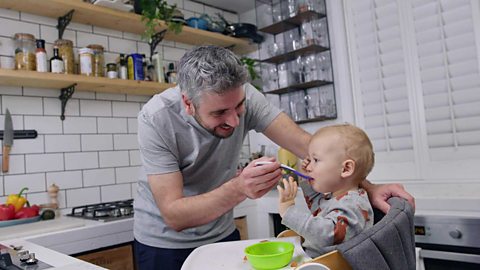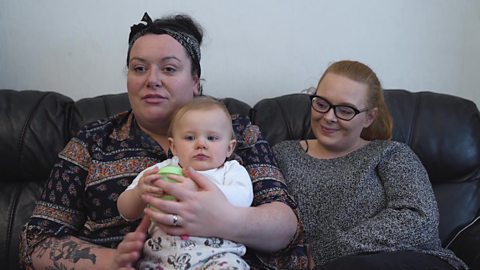If your dinner table feels like a battleground, youâre not alone â fussy eating in toddlers is surprisingly common.
âDepending on which study you look at, around 40% of children go through a fussy phase according to their parents and around a quarter will refuse at least one food every day,â says registered dietitian Lucy Neary of The Early Years Dietitian, who works with babies and children.
It tends to start around the age of 15-18 months and peak at around two years, explains Lucy.
âLots of children start to refuse new foods and they might refuse dishes at home that theyâve eaten elsewhere like nursery or a cafĂ©. They might also start leaning towards certain textures and safe, processed foods.â
You want your child to eat well and be healthy, so their fussiness can be incredibly emotional and stressful. âParents tend to blame themselves,â explains Lucy. âCooking is wrapped up in love so if your child doesnât eat your food, itâs natural to take it personally.
Then thereâs the added stresses of âWhat do I give them now? Will they be OK? Are they growing properly?â. You get swept up in this vicious cycle and mealtimes become increasingly negative experiences. One of the first things I do with people is try help them to understand why picky eating in toddlers happens and how it's not their fault.â

Weaning tips: heading off fussy eating
Although itâs not possible to completely prevent your child from becoming a fussy eater, there are preventative steps you can take during weaning to lessen the impact, says Lucy. âThereâs a critical window during weaning up to around 10 months when children eat anything.â
âOne of the things I suggest during the weaning process is to allow your baby to eat until they're full, as babies are born knowing how much they need to eat. Give them lots of different colours and textures. And I recommend two weeks at the very start of weaning when they eat primarily green vegetables. Children have a naturally sweet tooth and green vegetables can taste bitter so get them used to the flavour with things like broccoli, spinach, kale, courgettes and green beans. After this age, they tend to be less accepting and thereâs research to show that this approach can help them become less fussy as toddlers.â
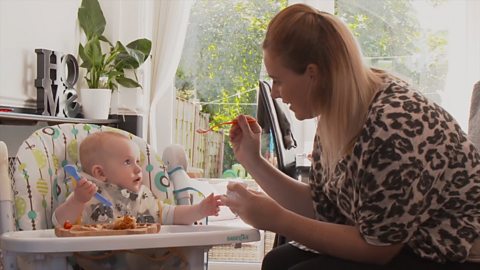
If your toddler is already a fussy eater
All is not lost if the weaning window has passed â there are plenty of ways you can encourage your toddler to develop a healthy attitude towards food and keep your cool. âYou might want magic, instant answers but handling fussy eating is largely about taking it back to basics,â explains Lucy.
8 tips to encourage your fussy toddler to eat
1. Donât pressure them
If youâre having a stressful dinner, itâs second-nature to try some hard âGo on, just one more bite!â negotiation. But this is counter-productive and can fuel fussy eating, explains Lucy. âIt can make your child afraid of mealtimes, which is why when they get to the dinner table, they might say âI'm not hungryâ. We all know that when weâre stressed as adults, about interviews or tests for instance, our appetite tends to drop. Finishing whatâs on your plate is engrained in us from our childhoods but children should be in charge of how much they eat.â
2. Monitor their weight and height
âIf you weigh and measure your child regularly and log these, it can put your mind at ease because youâll see that theyâre growing well,â advises Lucy. If you have any concerns about your childâs growth, then be sure to bring it up with your health visitor or GP.
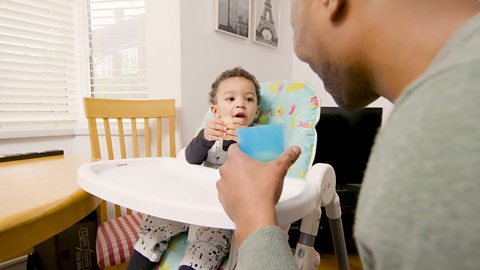
3. Eat as a family (when you can)
Itâs a great opportunity to talk and interact but it also gives you the chance to be a positive role model, explains Lucy. âChildren learn by copying. So sit down with your children, eat with them, show them that you are enjoying eating. If you donât, then children can think: âWell, why am I doing this?â.
4. Get your children involved with meals
âThereâs a reason that people who like cooking like eating â itâs because they're interested in food, they've learned about it, they understand flavours and where things come from,â explains Lucy. âLetâs be realistic, weâre all busy and you wonât be able to do it every day but as much as you can, get your toddler involved: washing fruit and vegetables, getting things out of the cupboard, cracking eggs. The more they have food in their hands and they're interacting with it, the more it will break down their fears and worries.â
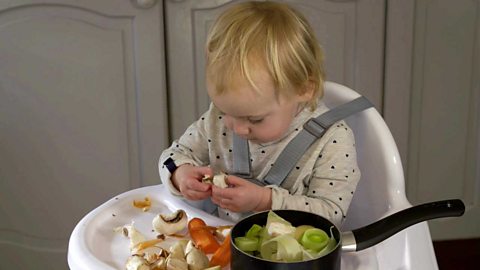
5. Talk positively about food
âAvoid negative language around food and your body,â say Lucy. âThrowaway comments like âI can't eat that!â stick in a childâs mind and communicate they shouldn't eat certain things.â
6. Teach them that all food is just food
âAvoid putting certain foods on a pedestal and using them as a bargaining tool. For example, âIf you eat your broccoli, youâll get ice creamâ. We know from the research that this makes fussy eating worse, because you're telling that child that broccoli is bad, and ice cream is good. Your message should be that all food is tasty and is there to be enjoyed.â
7. Have set meal and snack times
âGet into a routine and avoid grazing if you can help it,â says Lucy.
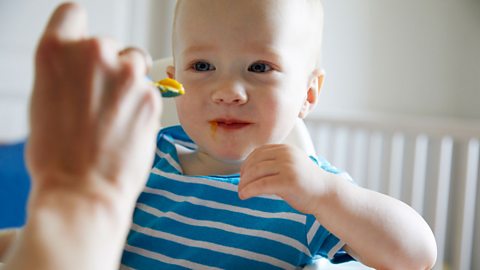
8. Be realistic
Donât put too much pressure on yourself and remember that lots of families are dealing with the same dinner battles as you, says Lucy. âSometimes this reassurance can help you feel more positively about feeding your little one.â
So, fussiness is normal, but when should you be worried?
âIf your child is extremely fussy and by this, I mean itâs been going on for months, or years, rather than just weeks and youâre looking at a really quite limited diet, avoiding whole food groups,â says Lucy. âAnd perhaps it's affecting them in another way, for example theyâre constipated, youâre worried about their growth, they seem to be very tired and lethargic, or they don't sleep well. Then see your GP. From here you can get a referral to see a dietician.â
For more advice on fussy eaters, check out the

